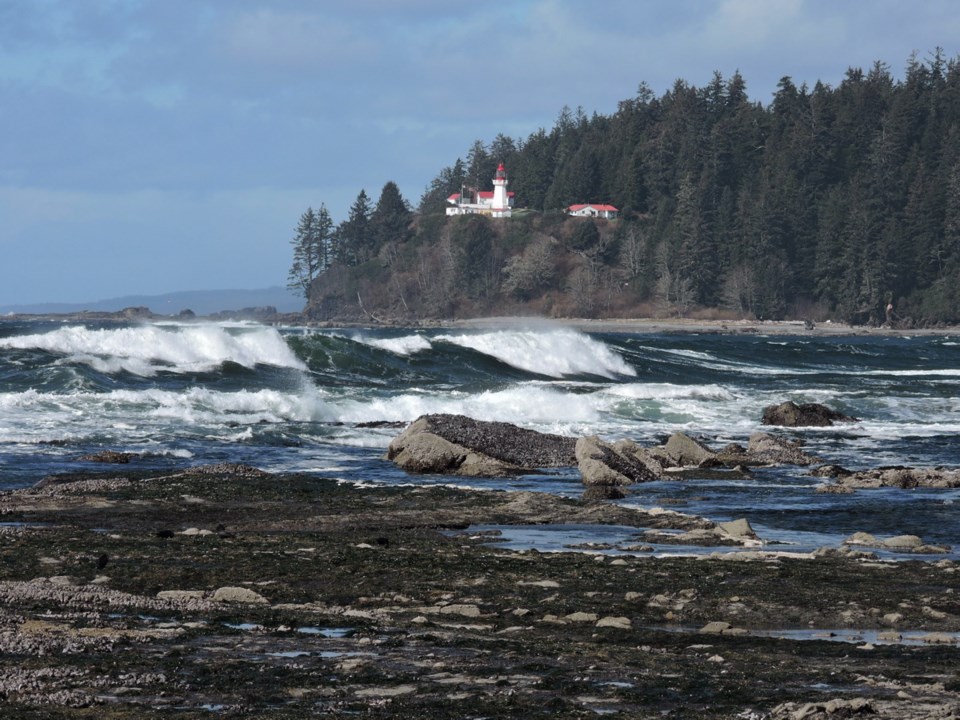HereвҖҷs irony: After years of trying to boot lighthouse keepers out of West Coast light stations, Ottawa canвҖҷt keep them in.
A shortage of keepers has forced the Canadian Coast Guard to leave some lights unstaffed, at least temporarily.
None are currently empty, but Pine Island, off the northern tip of В鶹ҙ«ГҪУі»ӯIsland, was lifeless for several weeks. Another light off the north coast has been affected four times since last winter. The lack of relief keepers has many of those at B.C.вҖҷs 27 staffed stations feeling stressed.
While the coast guard points out that even with no one on duty, all lights were still working and providing navigational aids to mariners, the lighthouse keepers union says the lack of a human presence is a safety issue for boaters, flyers and others. вҖңTheyвҖҷre rolling the dice, hoping nothing goes wrong,вҖқ says Barry Tchir of the Union of Canadian Transportation Employees.
The problem is one of recruitment and retention: Keepers are aging out and not enough people are applying to replace them. A report done for the coast guard in March cited a variety of factors, including low pay, a cumbersome application process, the ongoing misery of the federal governmentвҖҷs Phoenix payroll system and a lack of advertising for the vacant spots.
Then thereвҖҷs the nature of the job. It takes a special breed to want to live in isolation, cut off from the rest of the world. ItвҖҷs Eden to some вҖ” a few of todayвҖҷs keepers grew up in lighthouses and love being surrounded by nothing but nature вҖ” but Alcatraz to others.
The coast guard says it recognizes the recruitment barriers and is working to clear them. Dozens of applicants are in the pipeline. It currently has a posting for assistant lightkeepers.
Tchir isnвҖҷt as optimistic. He says more keepers are nearing retirement and the coast guard hasnвҖҷt done enough to address a shortage it saw coming years ago.
вҖңThe wheels of government sometimes move slowly, but this is ridiculous,вҖқ he says.
Again, thereвҖҷs irony here. For decades, Ottawa treated lightkeepers as a romantic extravagance, not a necessity, and tried to crowbar them out of their isolated outposts.
From 1970 on, the federal government closed or fully automated more than 200 of CanadaвҖҷs lighthouses.
In 2002, by which time 16 of B.C.вҖҷs 43 lights no longer had a human presence, federal auditor general Sheila Fraser complained about the $72 million Canada had spent on its remaining 50 staffed lighthouses since 1998.
вҖңIt is now accepted that staffed light stations are not necessary for maritime safety and navigation,вҖқ she wrote. That led the Liberal government of the day to take another run at destaffing in 2003 and the Harper Conservatives to try again in 2009.
But that led to a backlash from B.C., where what made sense on paper in Ottawa sounded crazy, if not downright reckless, to those contending with the snotty weather and demanding conditions of the remote, rocky reaches of the coast. The Conservatives abandoned the destaffing idea in 2011 after a Senate committee report argued strenuously for the need to keep real people on watch.
вҖңBecause of their presence at isolated and critical points along CanadaвҖҷs coasts, lightkeepers perform a variety of safety-related functions and services that are vitally important to mariners and aviators,вҖқ the report said.
In areas where conditions can change by the minute, pilots radio lighthouses for real-time weather reports. Boaters rely on them when their GPS craps out, or their engine fails. Every once in a while the TC runs a story about keepers either directing search-and-rescue efforts or heading off themselves to haul some blue-lipped, hypothermic kayaker out of the saltchuck. TheyвҖҷre also CanadaвҖҷs eyes and ear on its edges, watching for everything from oil spills to drug smugglers.
вҖңItвҖҷs far more complex and important a job than many Canadians are aware of,вҖқ says Sen. Pat Bovey, who is delving into the issue. Bovey is a Manitoba senator, but Islanders will remember her as the director of the Art Gallery of Greater Victoria for 18В years before she departed for Winnipeg in 1999. She still keeps a place here. In May, retiring senator Nancy Greene Raine asked her to take over the lighthouse file.
What Bovey has found so far concerns her. The shortage is even making it hard for keepers to go on leave.
вҖңYou canвҖҷt work 11 hours a day, seven days a week, not have a break and not end up with stress issues.вҖқ
Quite a change from the days when they were clinging to their lighthouses by their fingernails.



